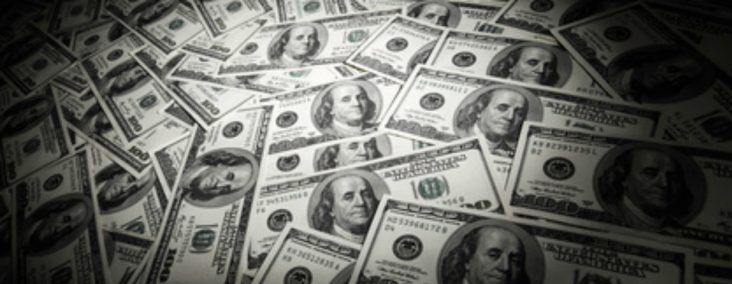Governor’s recommended state budget increases spending to $5.3 billion
by March 8, 2016 2:24 pm 523 views

Arkansas’ general revenue state budget for fiscal year 2017 would increase $142.7 million to $5.33 billion under the governor’s budget, which was recommended to legislators Tuesday by the Department of Finance and Administration.
Duncan Baird, DFA’s administrator for fiscal and budget, and DFA Director Larry Walther presented the plan to the Legislature’s Joint Budget Committee. The budget for fiscal year 2016 was $5.19 billion.
Legislators will consider the proposal when the fiscal session begins April 13.
The department is projecting a surplus of $35.9 million for fiscal year 2016, which ends June 30, but projecting no surplus for 2017. The department had a surplus of $191.6 million in fiscal year 2015.
The department is projecting revenues for fiscal year 2017 to be $5.33 billion, an increase of $106.8 million from projected revenues of $5.23 billion for fiscal year 2016.
A biennial budget for fiscal years 2016-17 was passed during the regular session in 2015. The proposal reflects an adjustment from that budget. The fiscal year begins July 1.
Forecasters are assuming the economy will continue to grow, particularly in the private sector because of less activity in the government sector. Wages are increasing while inflation is low. However, agriculture and manufacturing are struggling in Arkansas, DFA Director Larry Walther said in a letter provided to legislators. The economy faces numerous risk factors, including global economic stagnation and energy sector contraction.
DFA expects individual income taxes to increase by 2.8% in fiscal year 2017, but with an increase in refunds, the net will be 1.5%. Sales and use taxes will increase 3.9%. Corporate income taxes are expected to decline 1.4%, but refunds are forecast to be less, resulting in a 4.5% net increase.
The largest spending increase would come in the Department of Human Services, which would see its funding jump by $112 million, from $1.33 billion to $1.44 billion.
Baird told legislators that the budget assumes the Legislature will continue the private option in the form Gov. Asa Hutchinson wants, which he is calling Arkansas Works. Both provide private health insurance to individuals earning up to 138% of the federal poverty level using federal Medicaid dollars.
Legislators are meeting in special session starting April 6 to consider Arkansas Works, which must receive 75% approval in the fiscal session in order to be funded. The department is considering a scenario that would take into account additional funding needed if Arkansas Works is not approved. However, it has not produced a separate budget, Baird said.
Under the governor’s budget, state employees will not receive a cost of living adjustment, and many items in the state budget would see no increase from 2016 to 2017, including all of the state’s four-year and two-year colleges. The Arkansas Department of Higher Education would see an increase of $2 million, from $3.4 million to $5.4 million, for workforce initiative grants. The Arkansas Economic Development Commission would receive an additional $1.5 million, from $10.7 million to $12.2 million, to open an office in Germany and for other expenses.
The county jail reimbursement fund would decrease by $11.4 million, from $27.9 million to $16.5 million, because of a decrease in the backlog of state prisoners being housed in county jails. Meanwhile, the Department of Correction budget is increasing by $4.1 million, from $336.7 million to $340.7 million, to pay for expenses including the housing of state prisoners in a facility in Bowie County, Tex.
The largest item, the public school fund, would see a $23.7 million increase, from $2.164 billion to $2.19 billion. Money for facilities partnership funds for construction would increase $9.5 million, from $41.8 million to $51.3 million.
The budget did not include additional money for highways, which have not been funded through general revenues in the past.
However, Gov. Asa Hutchinson has announced a plan to increase highway funding by $750 million over the next 10 years, making the state eligible for $2 billion in federal matching funds over that time period. Fiscal year 2017’s new funding primarily will come from $40 million in one-time, unallocated surplus general revenue funds – $20 million of it from fiscal year 2015’s unobligated surplus funds and $20 million from the governor’s rainy day fund. In later years, 25% of unallocated surpluses, also from general revenues, will transfer to the Highway Department.
Senate President Pro Tempore Jonathan Dismang, R-Beebe, told legislators that they must set priorities. He said his include increasing the rainy day fund, which he said is not sufficiently large enough to withstand an economic downturn.
